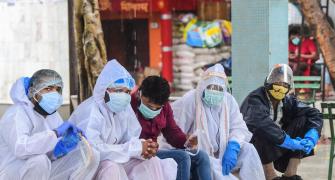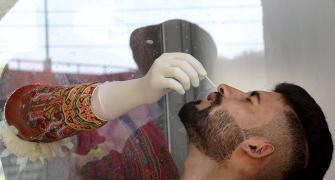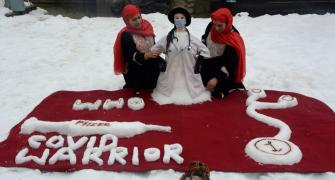After a month-long lockdown imposed due to a surge in COVID-19 cases, markets reopened in Jammu and Kashmir on Monday as the process of partial unlock started in the Union Territory, officials said.
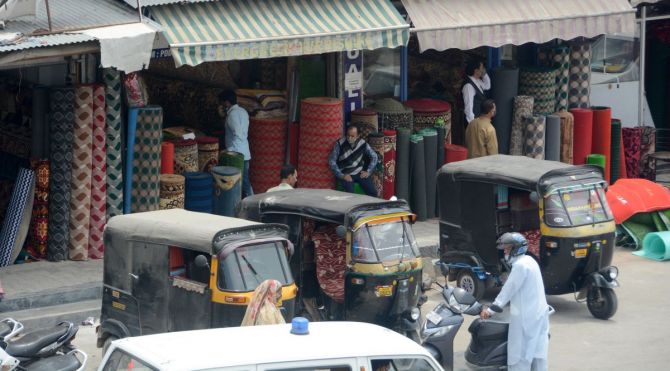
According to new guidelines imposed by authorities on Sunday, shops have been allowed to open on alternate days.
The public transport was allowed to ply at 50 per cent of the seating capacity in the Orange category districts, it remained shut in the Red category districts.
With the grim Covid pandemic situation appearing to be on the ebb in the last two weeks in the Union Territory, the administration on Sunday began the process of easing out the lockdown, limiting the corona curfew to nights and weekends only.
The ease-out process was launched amid the case positivity rate falling to 6.2 per cent from 13 and the daily COVID-19 sliding down to an all-time high of 5,500 to 2,200 in the past two weeks.
While deciding to relax the corona curfew, the Jammu and Kashmir 'State' Executive Committee, however, opted to keep all educational institutions, including the private coaching centres, closed till June 15.
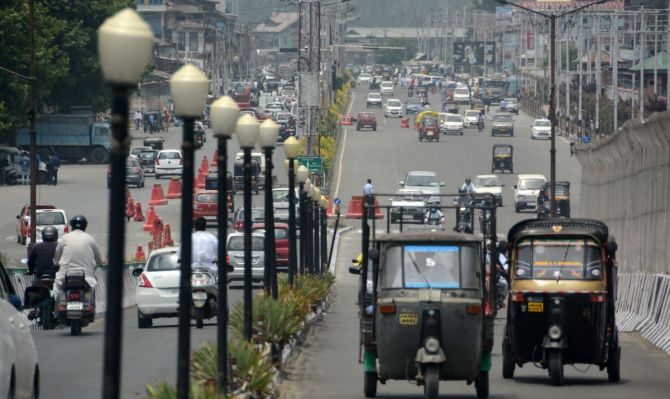
It also opted to keep all cinema halls, multiplexes, clubs, gyms, spas and paid parks closed till further orders.
Half of the 10 districts in Kashmir valley -- Pulwama, Anantnag, Baramulla, Budgam and Kupwara -- have been classified as Red, while the other half -- Srinagar, Shopian, Ganderbal, Kulgam and Bandipora -- belong to the Orange category.
Meanwhile, policemen in Jammu were seen making rounds of the partially opened markets and asking people to follow Covid-appropriate behaviour strictly, especially maintaining social distance and wearing of face masks.
"We are not out of COVID-19 as yet. Please keep in mind your safety and the safety of others by following the guidelines properly,” a policeman, using the public address system fitted in his patrolling vehicle, said while moving through Shalimar market in Jammu city.
The commuters, however, faced difficulties due to the absence of public transport as only State Road Transport Corporation vehicles and three-wheelers were seen plying on different routes.
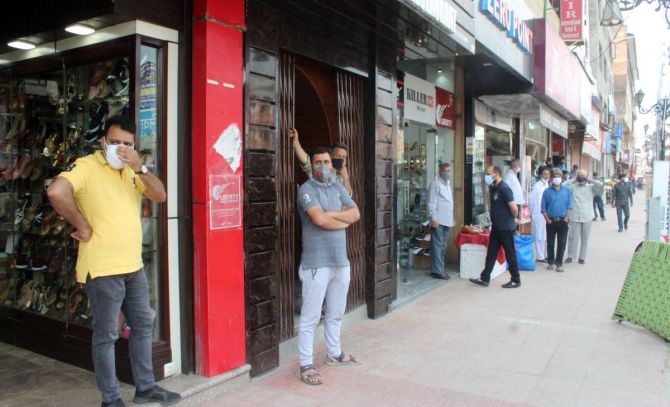
The private transporters went on an indefinite strike on April 21 after the government came out with COVID-19 guidelines which among other things allowed operations of public transport at 50 per cent of the authorised seating capacity in Jammu and Kashmir.
"We have been demanding a hike in passenger fare to facilitate smooth operations by the economically-hit industry but the government paid no heed. We are meeting again tomorrow (Tuesday) to make a decision,” said All J-K Transport Welfare Association chairman T S Wazir.
Appealing to the government to take the demands of the private transporters into consideration, he said it is not feasible for them to ply their vehicles as the fuel prices are skyrocketing and the transporters have already suffered huge losses since the outbreak of the pandemic.
According to the new guidelines, the complete corona night curfew will remain imposed from 8 pm to 7 am, while there will be a weekend curfew from 8 pm Friday till 7 am Monday.
On April 29, the Jammu and Kashmir administration had imposed a curfew in 11 districts in a bid to tackle the surge in COVID-19 cases, which was subsequently extended to all the 20 districts the next day.
The curfew, which was first imposed till May 3, was then extended after assessing the situation across the Union Territory.
Photographs: Umar Ganie/Rediff.com

